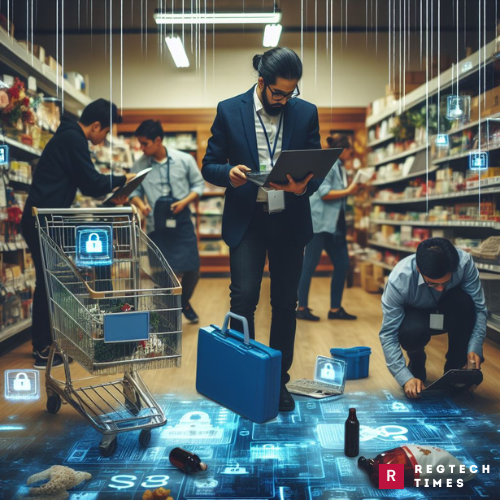In a recent development that has sent shockwaves through the retail industry, London Drugs, a leading Canadian retail pharmacy chain, experienced a significant cyber incident. This unfortunate event compelled the company to temporarily suspend operations across its stores in Western Canada.
The incident came to light on a Sunday night when the company issued a brief update on its official platform, stating that it had encountered an “operational issue”. The company, which is headquartered in Richmond, Canada, operates at least 78 stores across the country. In the wake of the incident, the company advised customers to contact their local store’s pharmacy for any urgent needs.
In a broader context, the incident at London Drugs sheds light on the critical issue of data protection within the healthcare sector, particularly in the United States. Healthcare organizations, including pharmacies, handle vast amounts of sensitive patient data, making them prime targets for cyberattacks. In the U.S., the Health Insurance Portability and Accountability Act (HIPAA) sets strict standards for protecting patient information and imposes severe penalties for breaches. However, despite these regulations, healthcare entities remain vulnerable to cyber threats due to the evolving nature of technology and the sophistication of cybercriminals.
The London Drugs incident serves as a stark reminder of the vulnerability of healthcare organizations to cyber threats, highlighting the urgent need for robust cybersecurity measures across the sector. As healthcare providers increasingly rely on digital systems to store and manage patient data, the importance of safeguarding this information against unauthorized access and breaches cannot be overstated. Enhancing cybersecurity infrastructure, implementing stringent protocols, and investing in employee training are crucial steps that healthcare organizations must take to mitigate the risks posed by cyber threats. Ultimately, ensuring the security and integrity of patient data is paramount to maintaining trust and confidence in the healthcare system.
London Drugs Response
Typically, companies would shut down their systems and services if they were attacked by ransomware. This is a preventive measure aimed at stopping attackers from exfiltrating sensitive data. While London Drugs has yet to confirm the nature of the incident, it informed CBC that it had shut down its stores “out of an abundance of caution”.
In a statement released late on Sunday, the company reassured that, at this time, there was no reason to believe that customer or employee data had been impacted. Following the discovery of the incident, London Drugs took swift action by bringing in third-party forensic experts to investigate and help mitigate the issue. The company emphasized that this incident was its utmost priority.
The Larger Context
Healthcare organizations, due to the sensitivity of the customer data they hold, are a major target for cybercriminals. Earlier this year, Change Healthcare, another healthcare organization, confirmed suffering a major attack which crippled its operations and even affected local pharmacies.
During the time of the incident, which occurred in late February, local media in some US states reported pharmacies experiencing outages. Some firms were unable to process prescriptions through patient insurance. In a desperate bid to regain control of its operations, Change Healthcare ended up paying more than $20 million in ransom, in exchange for the data which it never received. So far, no hacking groups have claimed responsibility for the attack.
Conclusion
The incident at London Drugs serves as a stark reminder of the vulnerability of healthcare organizations to cyber threats. It underscores the importance of robust cybersecurity measures and the need for constant vigilance. As the investigation continues, customers and employees alike will be hoping for a swift resolution and the assurance that their data remains secure.
In an era where data breaches and cyber threats are increasingly common, it is incumbent upon organizations, particularly those in sensitive sectors like healthcare, to invest in robust cybersecurity infrastructure and protocols. The London Drugs incident is a wake-up call for all, highlighting the need for proactive measures to safeguard against such threats.
As we await further updates on the situation, the hope is that this incident of London Drugs will serve as a catalyst for change, prompting organizations to prioritize cybersecurity and protect the interests of their customers and employees. After all, in the digital age, data security is not just a technical issue, but a matter of trust between a company and its stakeholders.


